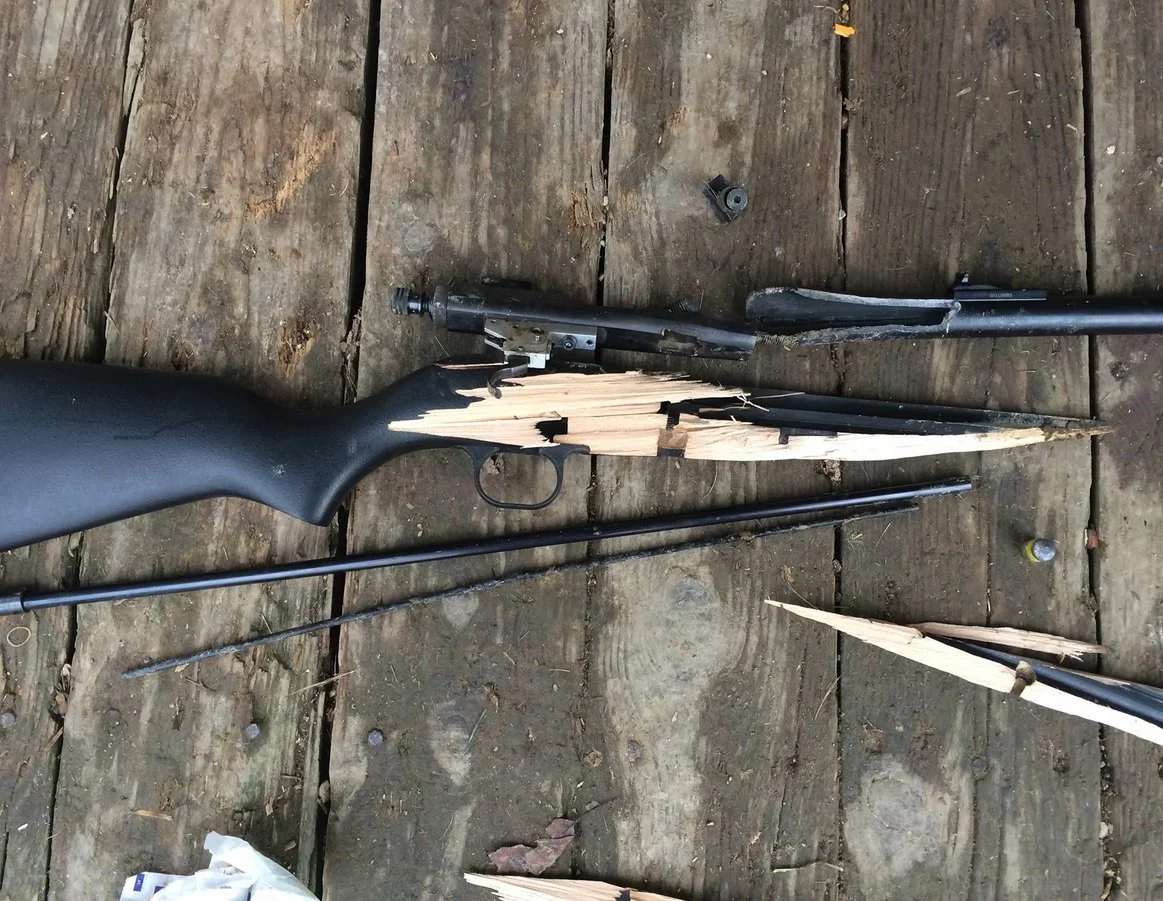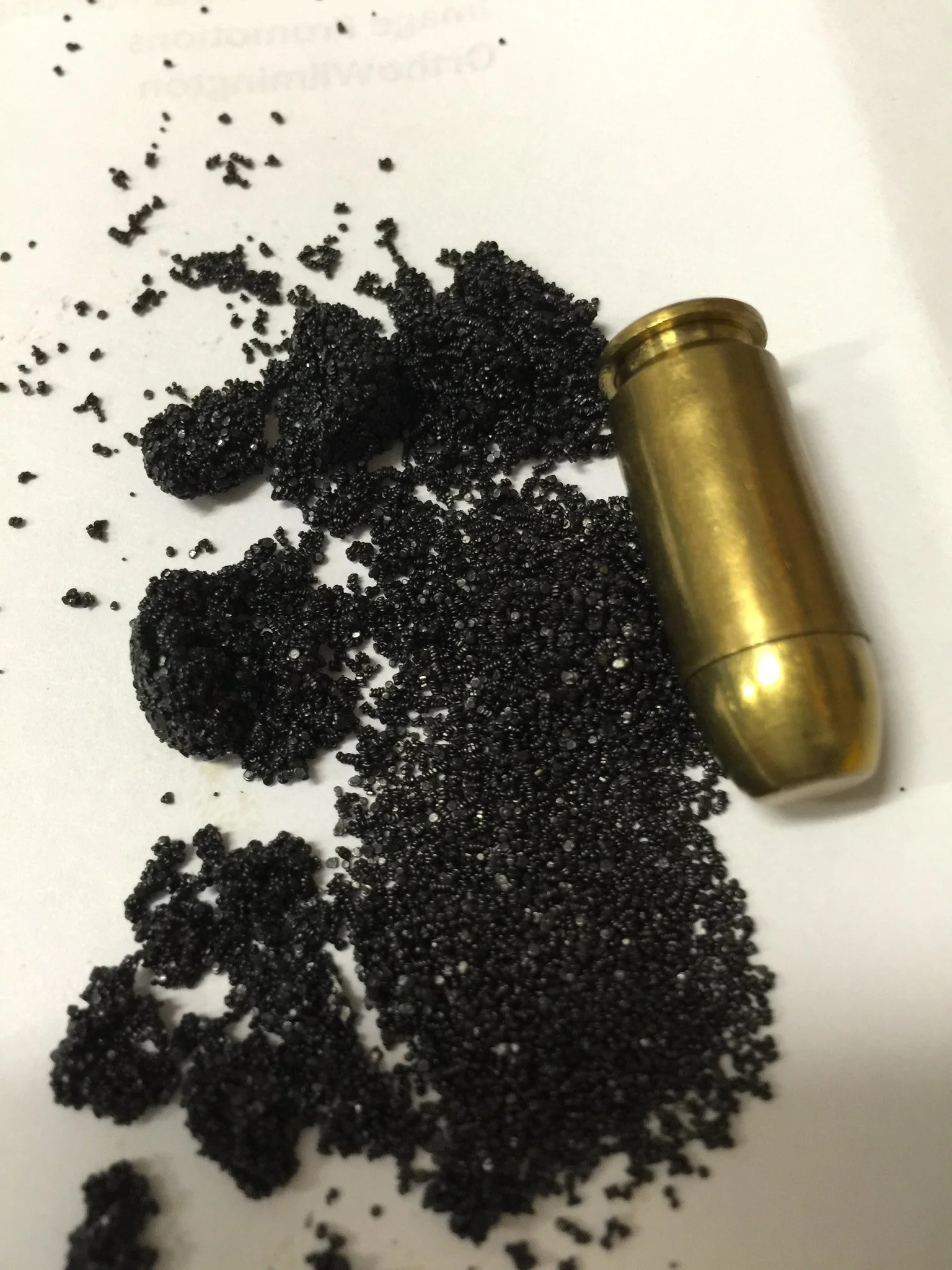So, you might be wondering, “What the heck is a squib?” A squib is what happens when you pull the trigger and something’s off. If you're at the range shooting alone, you'll probably know it right away; the sound isn’t the sharp bang you expect. It’s more of a pop or a weak poof. That’s because the bullet didn’t leave the barrel like it’s supposed to. Now, if you're in the middle of a gunfight, you might not realize it at first due to the chaos and adrenaline. Sometimes, the bullet does leave the barrel but with very little force, which can make it even trickier to catch. Either way, recognizing a squib is critical to avoiding bigger problems. The powder inside the cartridge either didn’t ignite fully or didn’t ignite at all. You’ve now got a bullet stuck in your barrel and if you don’t recognize it, things can get ugly fast. If it does get stuck and you fire another round without clearing the barrel, best case, your gun gets wrecked. Worst case, you injure yourself or someone else. A bulged or exploded barrel is no joke, and neither is a trip to the ER.
This rifle was destroyed by a squib.
What to Do Next?
First, make sure your firearm is cleared and unloaded. Check the barrel. Is it clear or is there an obstruction? If the bullet’s stuck in the barrel, you’ll need to disassemble your gun. Then, insert a squib rod or a wooden dowel into the muzzle end and tap with a mallet to safely get the bullet out.
Get Our Free Pro Training, Interviews, and Discounts on More Advanced and Live Training? Click to Join Our Email List
Why Do Squibs Happen?
Most of the time, squibs are caused by faulty ammo. If you’re shooting cheap factory loads or poorly reloaded rounds, you’re rolling the dice. Ammunition manufacturers are not perfect, and sometimes a cartridge gets out with little or no powder. It’s more common in hand-loaded ammo because of human error. Bottom line? Pay attention to the quality of your ammo. Don’t buy the sketchy, no-name stuff just because it’s cheaper. Your safety, and your gun’s life are not worth saving a few bucks.
Hand loaded ammo is more susceptible to squibs
How to Avoid Squibs
You can’t avoid all squibs. They happen. But you can minimize the risk:
Use quality ammo: Stick to well-known, reliable brands if you're buying factory ammo.
Stay alert: Every time you fire, pay attention to the sound, recoil, and how your gun behaves. The moment something feels or sounds weird, STOP.
Maintain your firearm: A clean, well-maintained gun is less likely to have malfunctions. Keep your barrel clean and regularly inspect it for damage.
Conclusion
Look, shooting should be taken seriously, and squibs are just one of the many things that can go wrong if you’re not paying attention. But if you know the signs and stay aware, you can avoid major headaches. Keep your gear in top shape, use quality ammo, and always trust your gut. If something feels wrong, stop and check. Better safe than sorry. In Intuitive Self Protection Courses, we teach our participants how to clear different types of malfunctions and even incorporate this into our drills on the range.
For more content like this, sign up for our email list.Also, check out our website, and show your support by liking, sharing this blog, and visiting us on Instagram, Facebook, Linkedin, Reality Check Radio and YouTube.
About The Author
Hank Hayes is a Combat Arts Hall of Famer and inventor of the No Lie Blade. He is the founder and CEO of both Intuitive Self Protection and NLB Tactical and creator of the ISP/NLB viscous fighting system. Since 1998, he has trained well over 30,000 Military and Law Enforcement personnel via Government contract mainly at the elite special teams level and continues to train both civilians and MIL/LE how to come home safe.


